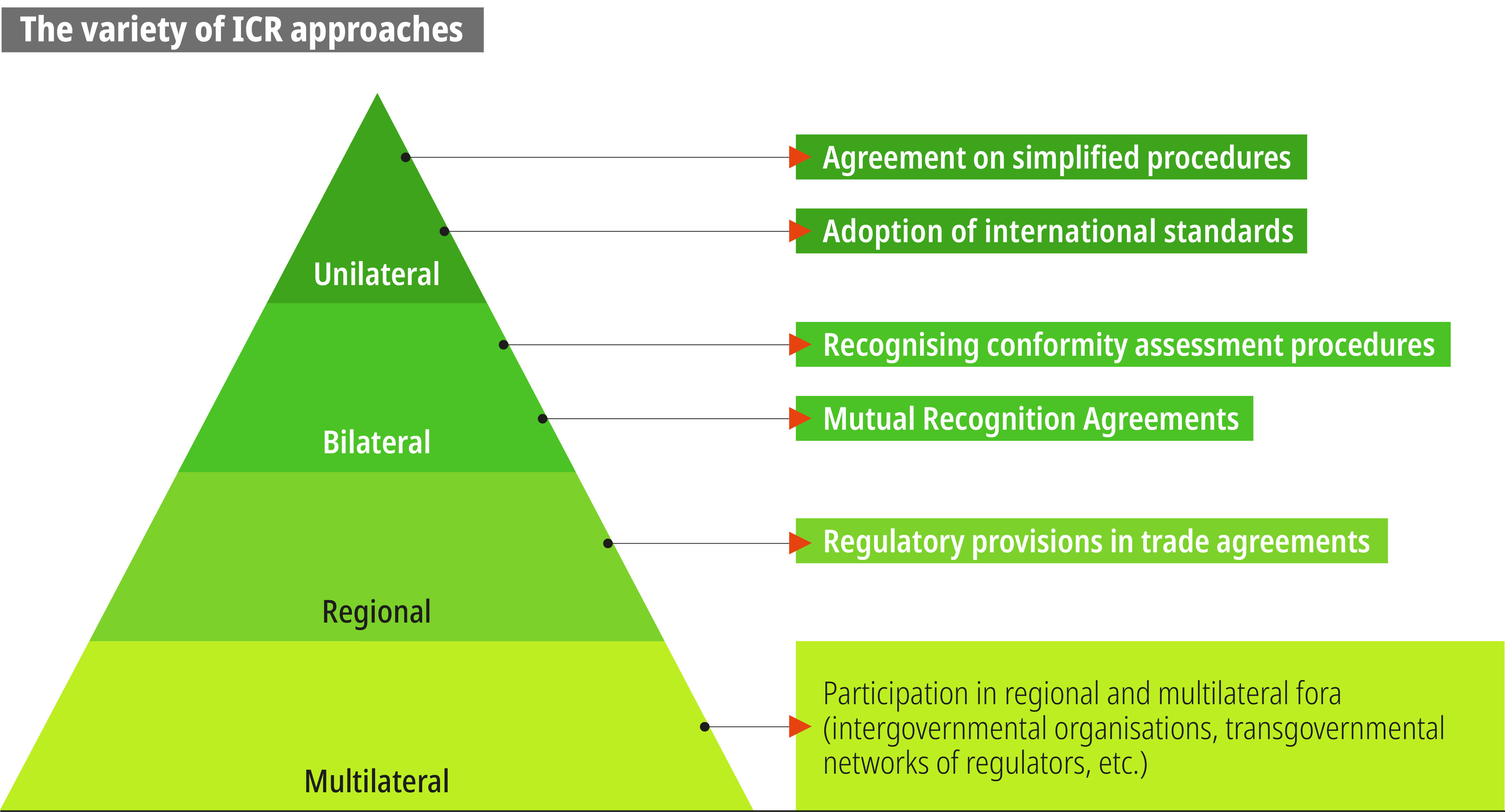International policy tools: Keep markets openInternational regulatory co-operation |
IssueAddressing policy challenges in an interconnected world requires international regulatory cooperation. As supply chains span across borders, the regulatory environment that can strengthen their resilience needs to be coordinated. The development of common approaches between governments is paramount in times of crisis when rapid action is essential, as it allows to save time by recognising the conformity assessment carried out by other countries. International regulatory co-operation is important to help harmonise approaches to avoid unnecessary frictions and negative cross-border effects when developing emergency measures. It is also fundamental to increase predictability, foster consistency of policy approaches and mitigate unnecessary impacts on trade. International regulatory cooperation involves a variety of actors at the national and international level, including law makers, regulators across different policy areas and private standard-setters. International organisations have the institutional setting and technical expertise to promote a common understanding in specific areas that are relevant to fight crises such as COVID-19. They can help focus regulatory co-operation across countries and facilitate the adoption of common rules that can strengthen the resilience of supply chains. Trade and investment agreements increasingly cover international regulatory cooperation in stand-alone chapters or in sectoral chapters. These agreements can include transparency mechanisms, the mutual recognition of conformity assessment procedures, the mandatory recognition of some technical regulations, or harmonisation measures. These mechanisms can help governments to be prepared and build resilience before crises. In addition, they can play a role during crises for the exchange of key information, the coordination in the adoption of emergency regulations and the implementation of regulatory flexibility. Policy action
Related tools & publications
|

